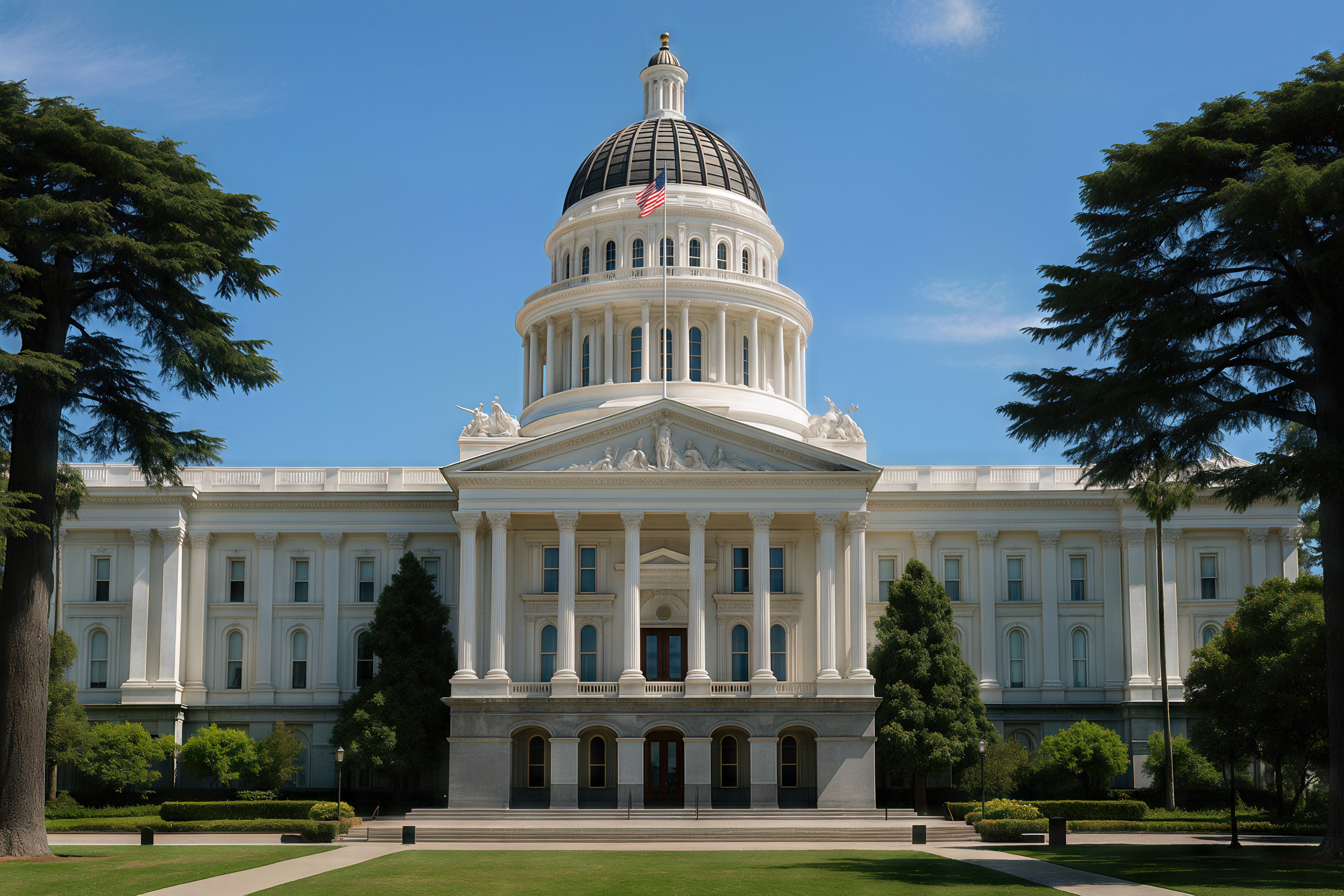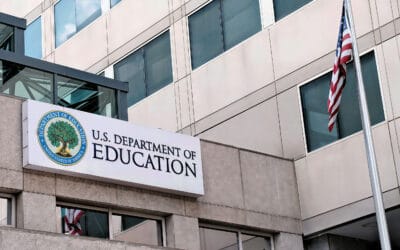Today, the Senate and Assembly Appropriations Committees acted on several major education bills pending on their “suspense files,” including bills addressing the use of 60-day substitutes, charter school reform, and immigration enforcement on school campuses. The suspense file is a procedural step used to park bills that have significant costs, allowing the committees additional time to review and prioritize them before deciding whether to advance or hold them.
Below we provide an analysis of several major bills that passed or were held. We have also curated a list of all the actions taken by the committees today on TK-14 related legislation, which is available here. You will note many bills were amended to achieve passage today. However, most of these amendments will not be in print until next week.
Both Charter Reform Bills Advance
Negotiations over charter school oversight are moving forward. Both AB 84 by Assembly Member Al Muratsuchi (D-Torrance) and SB 414 by Senator Angelique Ashby (D-Sacramento) advanced out of the Appropriations Committees with similar amendments. The two bills focus on non-classroom-based charter schools and LEA auditing standards.
As part of the most recent agreement, lawmakers and interest holders have settled on several new provisions. These include restrictions on how charter schools may contract for services, a prohibition on contracting with religious organizations, limits on the use of funds for items such as amusement park or zoo passes, and a ban on providing money to families in exchange for enrollment. The amendments also increase auditing requirements, including a new requirement for the State Controller to review audits for compliance every six months. One change to AB 84 removes a previous proposal that would have barred charter schools from using state funds for educational activities not taught by credentialed teachers.
Negotiations are ongoing, and further revisions to one or both bills are anticipated in the coming weeks. Since a bill must be in print for at least 72 hours before its final vote, lawmakers have until September 8 to reach a final agreement. So far, no word from Governor Newsom’s team on whether he would support or oppose either of these bills.
60-day Substitute, Other HR Bills Clear Committee
AB 1224 , by Assembly Member Avelino Valencia (D-Anaheim), which would allow, until January 1, 2029, credentialed substitute teachers to serve for up to 60 days in one assignment, doubling the standard 30-day cap (20 for special education) passed unanimously out of the Senate Appropriations Committee. In order to utilize the bill’s provisions, an LEA would have to have employed all available and suitable substitute teachers who hold a teaching permit for statutory leave if substituting for a teacher on statutory leave and have made reasonable efforts to recruit a fully credentialed teacher for assignments in vacant positions where a permit for statutory leave is not allowed. Having already been heavily amended through the policy committee process to address concerns raised by CTA and Public Advocates, AB 1224 passed out of the committee without any additional amendments.
Also making it out of the Senate Appropriations Committee is AB 1331 by Assembly Member Sade Elhawary (D-Los Angeles), which would prohibit public and private employers from using a “workplace surveillance tool” to monitor or surveil workers in certain employee-only, employer designated areas, including breakrooms and cafeterias. Coming out of the Senate Appropriations Committee, the bill was amended to narrow its scope and the hope is the amendments will address concerns raised by education advocates but we will have to wait to see the amendments in print next week to know for sure.
In the Assembly, SB 494 by Senator Dave Cortese (D-San Jose) passed to the Assembly Floor. The bill would allow permanent classified employees at non-merit school districts to appeal disciplinary actions to an administrative law judge that is paid by the employee’s LEA. SB 494 is the Senator’s second attempt to establish an appeals process for classified employees. He ran a similar bill last year ( SB 433 ), which was opposed by education management groups and ultimately vetoed by the Governor.
However, not all HR bills made it off their suspense files. Two bills that looked to establish attorney-client-like privilege between employees and their union representative were both held in committee. AB 340 by Assembly Member Patrick Ahrens (D-Campbell) would have prohibited an employer from questioning an employee or employee representative regarding representation-related communications made in confidence between the employee and employee representative. AB 1109 by Assembly Member Ash Kalra (D-San Jose) would have established an evidentiary privilege for communications between union agents and represented employees.
Suite of School-Related Immigration Bills still Moving
Looking to help protect schools from the impacts of immigration enforcement actions on student attendance, AB 1348 by Assembly Member Jasmeet Bains (D-Bakersfield) passed out of the Senate Appropriations Committee today. Specifically, the bill would allow an LEA, until July 1, 2029, to seek a J-13A waiver for a material decrease in ADA loss due to an immigration enforcement activity. In order to seek the J-13A waiver for this purpose, the bill would require an LEA, in addition to the normal requirements around filing an affidavit with CDE, to certify that it offered an independent study program to all students as well as adopted written policies for providing independent study instruction. Coming out of Appropriations, the bill was amended to “clarify” the independent student requirements but we will need to see the amendments in print to know what those clarifying changes are.
AB 1348 is part of a larger package of school-related immigration bills that continues to move through the process. Also included in the package is AB 49 by Assembly Member Muratsuchi, which prohibits LEAs from allowing immigration enforcement officials from entering nonpublic areas of a schoolsite without providing a valid judicial warrant, judicial subpoena, or court order and SB 98 by Senator Sasha Renée Pérez (D-Pasadena), which would require LEA governing boards to include within their comprehensive school safety plan procedures for notifying parents and school staff when immigration enforcement is confirmed on a schoolsite. Both of these bills previously moved through their Appropriations committees without being placed on the suspense file (due to having minimal cost impacts to the state) and are already on the floors of their respective houses.
Caregiver Affidavit Bill Moves Forward with Amendments
AB 495 , authored by Assembly Member Celeste Rodriguez (D-Sylmar), had been quietly moving through the legislative process until about a month ago, when the bill made the rounds on social media and opposition to the bill exploded. Opponents have argued that the bill will allow anyone to come on campus and remove a child.
For context, the bill’s provisions address the Caregiver Authorization Affidavit, which has been around for decades and, under current law, authorizes a child’s relative to make educational decisions when a child’s parents are not available or are otherwise incapacitated, or to make medical decisions for the child that pertain to the education setting. AB 495, largely in response to concerns over a child’s parents getting detained by ICE, seeks to expand the parties that are authorized to utilize the caregiver affidavit to also include a “nonrelative extended family member,” and defines that to mean any adult caregiver who has an established familial or mentoring relationship with the child or who has an established familial relationship with a relative of the child.
Despite the significant uptick in opposition from the public, the bill passed today with amendments to add a severability clause and provide clarifying changes. Given the confusion over the applicability of the bill’s provisions, we will need to see what clarifications were made and if they address the outpouring of opposition once the amendments are in print.
What’s Next?
There are now just two more weeks left in this year’s legislative session, with legislators having until midnight on September 12 to wrap up their work for the year. Bills that passed today will now head to the floors of both houses, where the full bodies of each will take final votes on bills.
After the gavel falls on the last day of Session, all eyes will shift to Governor Newsom, who will have 30 days to sign or veto any bill sent to him within the final 12 days of Session. As always, our team will put together a comprehensive analysis of all the bills impacting TK-12 education that ultimately are signed into law this year, sorted by broad subject matter area. While we still have a ways to go before that time, look for those reports to start hitting your inbox in late-October. In the meantime, please reach out with any questions.




0 Comments